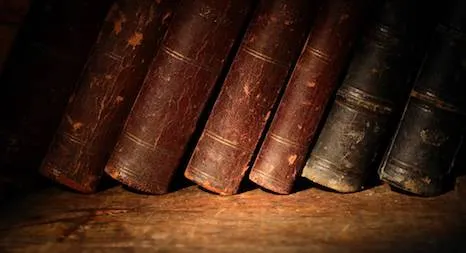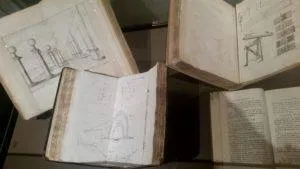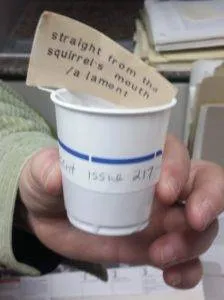
Exploring Special Collections: Libraries Where the Rarest Books Live
We’ve all got that one extra special book that’s filled with nostalgia and feelings. You know the one I’m talking about, you can’t open it without flashing back to the first time you read it or where and when you bought it. It’s got memories etched between the words that you can’t see but you know exist because your heart aches when you see a copy that doesn’t have that history. There’s the story in the book, and then there’s the story of you reading that book. These stories that exist above the words are part of what make used books so exciting. What clue about the book’s past life will someone have left in the one you read? I am so happy to report that used bookstores are not the only place to discover such histories. There are whole libraries dedicated to the collection of rare and old books in which you can hold and wonder at the history of books that were printed and loved as far back as the 1500s. I got the opportunity to explore and chat with the staff of one such library, the Special Collections Library at the University of Wisconsin-Madison.
 The Department of Special Collections at UW-Madison includes books that need a little extra love and care because of their age or rarity. When I visited, I was lucky enough to chat with librarian extraordinaire, Susan Barribeau. Susan’s official title is the English Language Humanities Librarian and Literary Collections Curator. She is specifically in charge of two collections within the library, the Little Magazines Collection (think literary magazines) and the Cairns Collection of American Women Writers (if she is American, a woman, and wrote between 1650 and 1940, she might be in Special Collections at UW-Madison!).
The Department of Special Collections at UW-Madison includes books that need a little extra love and care because of their age or rarity. When I visited, I was lucky enough to chat with librarian extraordinaire, Susan Barribeau. Susan’s official title is the English Language Humanities Librarian and Literary Collections Curator. She is specifically in charge of two collections within the library, the Little Magazines Collection (think literary magazines) and the Cairns Collection of American Women Writers (if she is American, a woman, and wrote between 1650 and 1940, she might be in Special Collections at UW-Madison!).
 As her title indicates, Susan acts as part librarian, part curator. She gets to track down and decide which books will be included in the collection, or, indeed, if certain manuscripts even qualify as books, as I imagine was the case with a walnut in a cup that was an issue of a little magazine she showed me.
Even as we talked about the books being stored in special temperature controlled vaults that send an alarm to the head librarian if the conditions change, Susan stressed that Special Collections is first and foremost a library. The idea that this collection of books which were so rare, valuable, and old that they required two floors of vaults and a staff of people to store and care for them properly could be considered more library than museum is a tad mind boggling. However, this exact point was made abundantly clear when I attended an event at the library called Holding History. This event allowed students at UW-Madison to show the rest of us exactly what we could do with Special Collections.
As her title indicates, Susan acts as part librarian, part curator. She gets to track down and decide which books will be included in the collection, or, indeed, if certain manuscripts even qualify as books, as I imagine was the case with a walnut in a cup that was an issue of a little magazine she showed me.
Even as we talked about the books being stored in special temperature controlled vaults that send an alarm to the head librarian if the conditions change, Susan stressed that Special Collections is first and foremost a library. The idea that this collection of books which were so rare, valuable, and old that they required two floors of vaults and a staff of people to store and care for them properly could be considered more library than museum is a tad mind boggling. However, this exact point was made abundantly clear when I attended an event at the library called Holding History. This event allowed students at UW-Madison to show the rest of us exactly what we could do with Special Collections.
 There were tables set up with books on cushions, to protect their spines, that I could flip through as they told me what they had learned through their research. As I handled books that felt fragile enough to justify putting them behind glass, I was told the story of their making, content, and creators. The most beautiful thing about the whole experience was the knowledge that Special Collections is open to the public. Anyone that has an interest in and love for books or the knowledge that can be found within, can come to the ninth floor of the library and breath in the stories that exist both in and around the words of the books we love. While the Special Collections at UW-Madison is unique in many ways, there are other collections with their own specialities, particularly in cities with large universities. If you get an opportunity to explore such a library, I highly recommend doing so, and if you live near one, check to see if they have an event similar to Holding History to guide your explorations!
There were tables set up with books on cushions, to protect their spines, that I could flip through as they told me what they had learned through their research. As I handled books that felt fragile enough to justify putting them behind glass, I was told the story of their making, content, and creators. The most beautiful thing about the whole experience was the knowledge that Special Collections is open to the public. Anyone that has an interest in and love for books or the knowledge that can be found within, can come to the ninth floor of the library and breath in the stories that exist both in and around the words of the books we love. While the Special Collections at UW-Madison is unique in many ways, there are other collections with their own specialities, particularly in cities with large universities. If you get an opportunity to explore such a library, I highly recommend doing so, and if you live near one, check to see if they have an event similar to Holding History to guide your explorations!

Books on display from the extensive history of science collection.

Issue 217 of the little magazine 1 cent AKA the Walnut Issue.

Books on display on their special spine protecting cushion at Holding History.